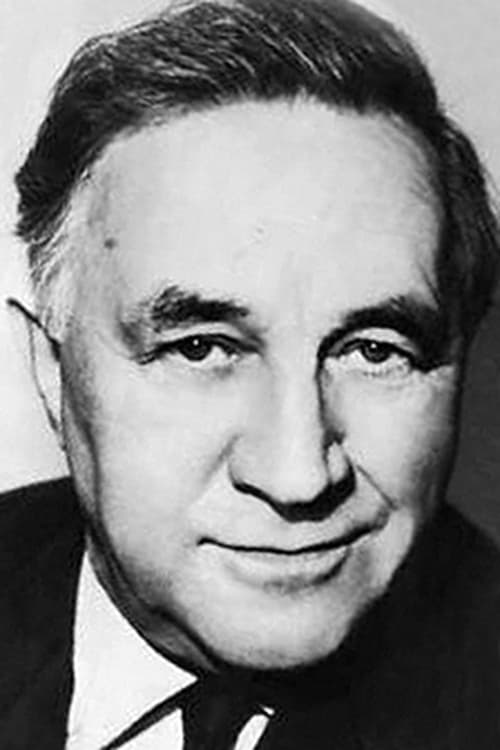
Fritz Diez
Nascimento : 1901-02-28, Meiningen, Thuringia, Germany
Morte : 1979-10-19
História
Fritz Diez was a German actor, producer, director and theater manager.
Grew up in a poor family, started earning a living as a boy. He was a newspaper salesman, moonlighted on tennis courts, then learned to be an electrician. Graduated from the Academy of Dramatic Art in Meiningen. Upon graduation, he was an actor in provincial theaters in Eisenach, Hanau, Flensburg, Eger, Baden-Baden. Fritz Dietz adhered to leftist views, so he emigrated with his wife to Switzerland in 1935. Played in theaters in Switzerland. In 1946 he returned to Germany. He worked as a general manager, actor and theater director in Dresden. Since the early 1960s at the Volksbühne Theater in Berlin. In the cinema since 1952 - "Shadow over the Islands" (Arne Roge, 1952). In 1955, for the first time, he played the role of Adolf Hitler in the famous film "Ernst Thalmann - the leader of his class". In 1967, he played the role of Hitler in two films of the DEFA studio at once. Soviet film director Yuri Ozerov invited Fritz Dietz to play the role of Hitler in the film epic "Liberation", but the actor was tired of portraying this image both in theater and in cinema, he was afraid of becoming a hostage to one role, and refused. Only under the influence of Erich Honecker, Fritz Dietz was forced to give his final consent to the performance of the role so hated by him. Fritz Dietz - the best performer of the role of Hitler of the XX century. An accurate psychological characterization of the character, an inflated and, at the same time, realistic drawing of the character of the Nazi leader - those features of Fritz Dietz's game that allowed him to play Hitler convincingly and non-cartoonically in the film epic "Liberation" (1968-1970). He played Hitler in the television series "Seventeen Moments of Spring" (1973), "Soldiers of Freedom" (1977) and other films. In 1980 Dietz's last film "Gluck im Hinterhaus" was released, in which he played the father of Karl Jägr.

Karl Erp is a middle-aged man with two children and a boring marriage. After starting an exciting affair with his intern, Miss Broder, he leaves his loveless marriage and moves in with his lover. Under pressure from Miss Broder’s mother, Karl once again promises marriage. He finds, however, that the excitement that drew him to her in the first place doesn’t carry over into their daily lives.

Adolf Hitler / Otto Hahn
A story of the creation of the atomic bomb in America, Germany and the USSR.

A story about the friendship between the children from Soviet Union and East Germany.

In Berlin, Lieutenant Yartsev's infantry and Tzvetaev's battery fight their way in the U-Bahn. Captain Neustroev's company is selected to hoist the Victory Banner atop the Reichstag.

In this the fourth episode, “Battle of Berlin,” the Soviets start their assault on Berlin and Stalin negotiates with the other Allies.

Hitler
Parte 1 e Parte 2

Hitler
A grandiose military film epic, which does not know analogues in world cinema: the history of the Great Patriotic War from the Battle of the Kursk Bulge to the installation of the Banner of Victory over the Reichstag - "Liberation".
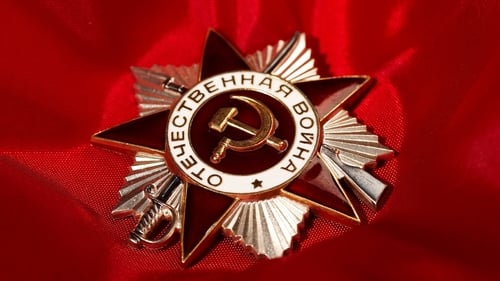
Adolf Hitler
O trabalho mais famoso do diretor de cinema russo Yuri Ozerov é o épico Osvobozhdenie (A Libertação) sobre a WWII, feito em cinco partes e 470 minutos, que foi muito popular em seu país. Cada uma das duas primeiras partes foi visto por 56 milhões de pessoas. Osvobozhdenie (1967-1971), seu maior sucesso, foi notável não só por suas impressionantes cenas de batalha, mas também por sua tentativa de mostrar a guerra pela perspectiva dos soldados russos comuns. 1 O Arco de Fogo 2 O Avanço 3 Rumo ao Golpe Principal (parte 1) 3 Rumo ao Golpe Principal (parte 2) 4 A Batalha por Berlim 5 O Ataque Final

Hitler
At the year 1946, the time of the Nuremberg Process. One of the main actors of the Second World War, who reportedly committed suicide, Adolf Hitler is, however, missing. The Czech doctor Herman (Karel Höger) is kidnapped from Prague and driven to the sanatorium of Professor Rolf Harting (Jirí Vrstála). The sanatorium is a disguised military stronghold, most probably occupied by a Nazi garrison, with prison cells and an execution chamber in the basement. At night, Herman is taken to a patient in whom he, to his horror, recognizes Hitler (Fritz Diez).
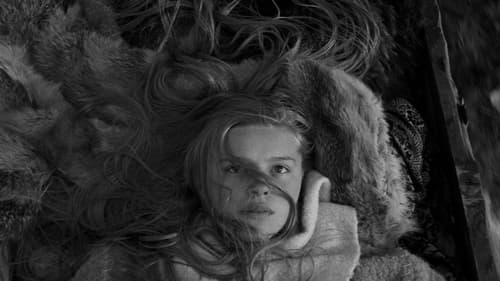
Armiger (voice)
Marketa Lazarova é um épico medieval poderoso, situado no século Xlll. Baseado na obra do escritor Vladislav Vancura, o filme segue a rivalidade entre dois clãs guerreiros, os Kozliks e os Lazars. Lazar segue o cristianismo e é pai da jovem Marketa Lazarová. Quando Lazar recusa-se a ajudar Kozlík numa guerra, Mikolás, o filho de Kozlík, sequetra Marketa, que se preparava para entrar num convento. Mas o amor dos filhos dos rivais, Mikolas Kozlik e Marketa Lazarova, é condenado por ambas as famílias.

Adolf Hitler
In November of 1939, the British consulate in Norway receives documents saying that the Nazis are conducting secret rocket research in Peenemünde. But the British doubt the authenticity of the so called "Oslo report". Thus, the Germans continue their experiments unimpeded. At the same time, resistance groups from France, England, Poland, and Germany try to find and to sabotage the secret Nazi research base. When the first "V 2" rocket is successfully launched, the Allied commanders finally become interested in the "Oslo report".

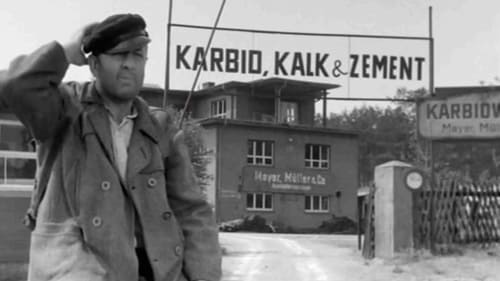
After the second World War, Dresden has a lot of reconstructing to do. To get the cigarette factory he once worked for running again, Kalle has to travel to Wittenberg - the only place where carbide can be found. Once there, Kalle find himself in the unfortunate situation of having to hitchhike his way back to Dresden, transporting seven heavy barrels of carbide. However, his inventiveness and optimistic attitude help transform the grueling task into an adventurous, entertaining, and funny journey.

Hellmut von Gerlach
The film chronicles the last ten years in the life of Nobel Peace Prize recipient Carl von Ossietzky (1889-1938).

Narrator (voice)
East German animation movie about an overweight pasha.

Major Balanos
It is the year 1936 and the Spanish Civil War is raging. When the German commander of an international brigade is badly wounded he gives his five comrades a message which he divides up and secretes into in five cartridges. All five shells must reach the battalion in order for the message to be relayed. But Frenchman Pierre can’t bear the heat of the Sierra. When he leaves their hide-out to drink from a well he is hit by an enemy bullet.

Film by Frank Vogel.

The soldier Martin has been relocated to a small border village in Thuringia. During a storm, he comes to the rescue of Renate, a farmer′s daughter. The two young people fall in love, thereby upsetting Renate′s father who has already promised his daughter to the son of the big farmer Grabow. Henceforth, he does his utmost to tear Martin and Renate apart. Meanwhile, Grabow prepares to flee the GDR with the help of the lance-corporal Zimmer who is indebted to him.

It is the 65th birthday of Wilhelm Lehmann, foreman of a chemical company. All members of the large family are expected. Preparations are also being made in the company: Wilhelm is to be awarded the »Labor banner« and, as every year, the sons are responsible for the may bowl. But instead of family members, telegrams with rejections flutter into the house.

Two young building workers are more interested in girls than their work; complications ensue at home.

Captain Gerner
At the end of the 1950s, the production of optics in the German Democratic Republic has reached top quality and instigates interest in the West. When national demand rises strongly and at the same time the export to South America heavily decreases, the Volkspolizei - the GDR police force - starts to look into the case. Two seemingly unrelated cases are the starting point for the investigation by second lieutenant Schellenberg of the department for optics racketeering: An old woman who was arrested in the Berlin city railway for trying to smuggle a pair of binoculars to West Berlin, and a dead person in an area of allotments who was involved in obscure dealings with optical devices.

Lieutenant Wegner

In 1523, young Thomas Müntzer arrives with his wife Ottilie in the Thuringian village Allstedt to assume the rectorate. As a follower of Luther′s teachings, he finds in the Bible not only reasons for clerical, but also for secular reforms. But when Luther turns away from the rural population after a discord with Müntzer, it is Müntzer who becomes the peoples′ spokesman. He is forced to go to Southern Germany, where he convenes with revolting farmers. But his way leads him back to Thuringia. In 1525, he and Heinrich Pfeiffer form the centre of the Thuringian peasant uprising in Mühlhausen, but their success is diminished by the fact that peasants and craftsmen don′t seem to be able to work together. In Frankenhausen, Müntzer becomes the leader of a peasants′ army that is set to fighting the ruler′s army – and sustains a devastating loss. Müntzer is arrested and sentenced to death by decapitation for his insurgency.
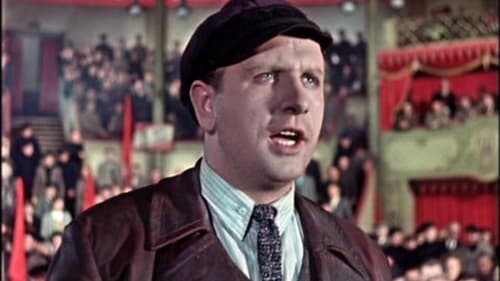
Hitler
This film is the second of a two-part historical and biographical portrait of the communist politician and anti-fascist Ernst Thälmann. Autumn, 1918: Somewhere on Germany’s western front, Ernst Thälmann, age twenty-four, is calling on his fellow soldiers to put down their guns and join him in the communist struggle at home. When Hamburg’s Police Commissioner blocks a much-needed food shipment to the workers of Petrograd, Ernst battles to see it allowed through. Until his murder on August 18, 1944, Ernst remained true to his political convictions in the face of many setbacks.











